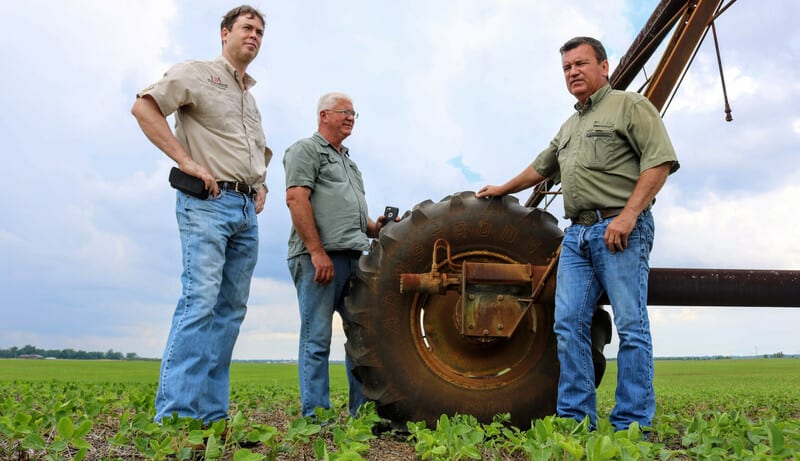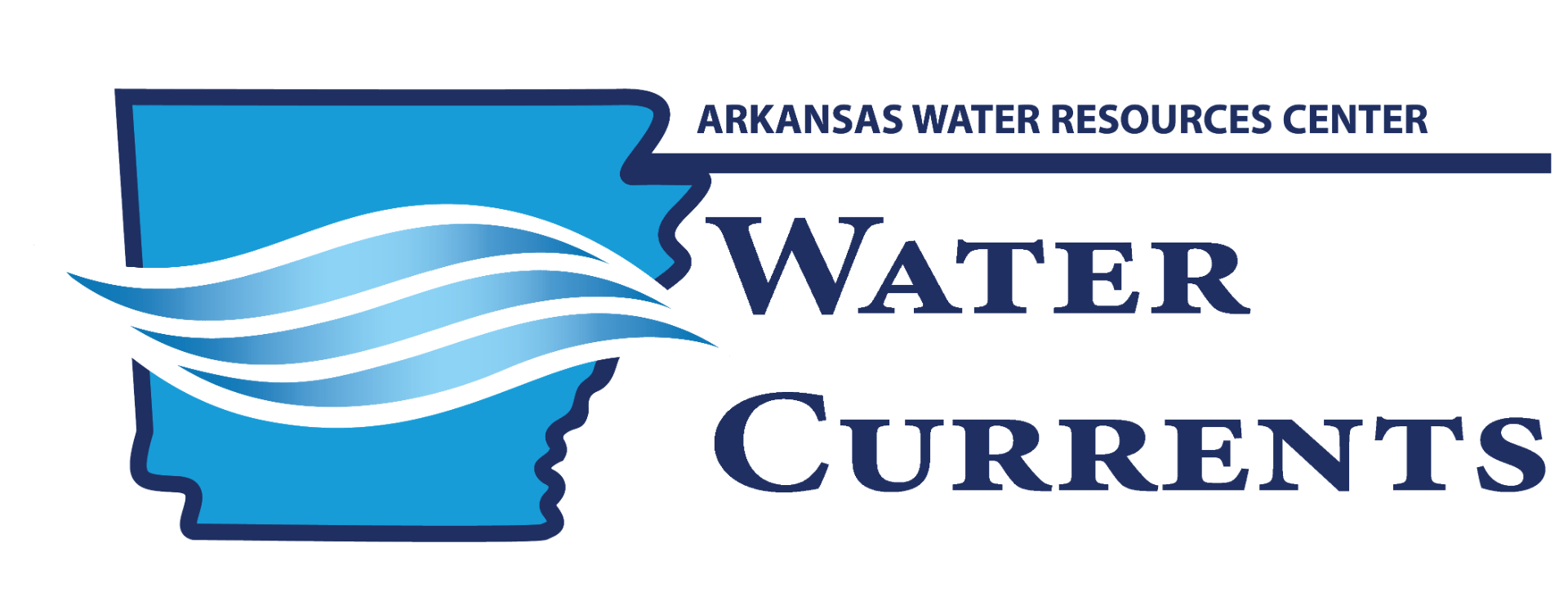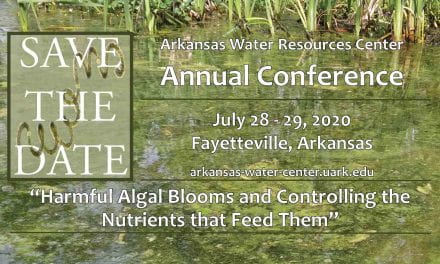
Recap of the 2019 Arkansas Soil and Water Education Conference and Expo

The 20th annual Arkansas Soil and Water Education Conference and Expo was a huge success! The meeting this year brought together over 450 agricultural producers, researchers, government agents, students, and vendors to share ideas about how to improve soil and water conservation and increase crop yields at the same time.
“The participation and interest shown by so many local producers makes this meeting unique and worth attending each year,” said Colby Reavis, a graduate student from the University of Arkansas.
Morning Sessions
The conference opened with a brief welcome address from Dr. Tim Burcham, dean of the College of Agriculture at Arkansas State University and Dr. Kelly Damphouse Chancellor of Arkansas State University.
The morning kicked off with talks focused on water quantity issues (too much and not enough) in the Upper Cache River Watershed and Mississippi River Valley. In recent years, flooding events have worsened, resulting in damage to farms and a loss of crops within the Upper Cache watershed. Speakers talked about how implementing new practices like two-stage ditches and developing wetlands might help reduce the effects of future floods. While flooding may be an issue during part of the growing season, dry conditions later in the season and reliance on groundwater for irrigation have resulted in the depletion of the Mississippi River Valley Alluvial Aquifer (MRVA).
Groundwater conservation was the primary focus of the second session. Speakers discussed conserving groundwater resources through increasing reliance on surface water and reducing the overall use of water for irrigation. State and federal conservation programs can help producers alleviate some of the financial burden of making these changes. Dr. Jason Krutz, Director of the Mississippi Water Resources Research Institute, emphasized the importance of planting the correct crop variety for your soil type and using soil moisture sensors to help guide when you should irrigate.
Afternoon Sessions
After lunch, the winners of the first annual Arkansas Irrigation Yield contest were announced. The contest was designed to test the knowledge and ability of soybean, corn, and rice growers to produce the “Most Crop per Drop”. Winners in each category took home over $20,000 in cash and prizes.
- In the soybean category, first place went to Michael Taylor for producing 3.9 bushels/acre-inch.
- In the corn category, first place went to Jason Bennet with 10.6 bushels/acre-inch
- In the rice category, first place went to Richard and Matt Morris for producing 7.8 bushels/acre-inch.
For additional details about the first years competition click here.
The conference concluded with a panel discussion over row rice production. Row rice is a relatively new method for growing rice and it receives its name from being grown in rows. Row rice is furrow irrigated as opposed to more conventional methods of controlled flooding. The panel consisted of several rice growers in the state that have begun to switch their rice fields over to row rice production. The panelists discussed their likes and dislikes for the method and provided tips to help other rice producers in the crowd successfully implement this new method in their own fields.
Poster Competitions
Undergraduate and graduate students from across the state showed up to present their research covering a wide range of topics focused on water quality and quantity. The poster session was sponsored by the Arkansas Soil and Water Education Conference and Arkansas State Ecotoxicology Lab. The top three posters at the undergraduate, masters, and doctoral student levels took home a cash prize.
Undergraduate Student Competition:
1st Place: Kinley Davenport, Emma Martin, and Jennifer Bouldin, for their poster “Assessing water quality of agricultural ditches in Northeast Arkansas using aquatic macroinvertebrates.”
2nd Place: Jessica Krob, John Nowlin, and Tina Gray Teague, for their poster “Watermark sensors and heterogeneous soils: Variation in soil moisture with different cover crop practices in Arkansas cotton”.
3rd Place: Zack Wofford, Kanaan Hardaway, Eleanor Henson, Eli LaSalle, Madeline Oxner, and Benjamin Runkle, for their poster “Measuring hydrologic benefits of a green roof”.
Masters Student Competition:
1st Place: Ian Godwin, Deb Leslie, and Michele Reba, for their poster “Infiltration galleries for managed aquifer recharge of the Mississippi River Valley Alluvial Aquifer”.
2nd Place: Amber Ruby and Jennifer Bouldin, for their poster “Assessment of seasonal and agricultural impacts of water quality in Bayou Deview Watershed, Arkansas”.
3rd Place: Diego Lunga, Kristofor Brye, and Chris Henry, for their poster “Chamber effects on soil moisture and plant productivity in furrow-irrigated rice on a siltloam soil”.
Doctoral Student Competition:
1st Place: Amelia Atwell and Jennifer L. Bouldin, for their poster “Evaluating nutrient and sediment contributions to the agriculturally dominated Upper Cache River Watershed, Arkansas”.
2nd Place: Yin-Lin Chiu and Michele Reba, for their poster “Development of a wireless sensor network for real-time remote management and control of irrigation events”.
3rd Place: Niyi Omidire, Ryder Anderson, and Kristofor Brye, for their poster “Soybean response to recycled nutrients from wastewater”.
Banner photo from Farm Journal Media.














